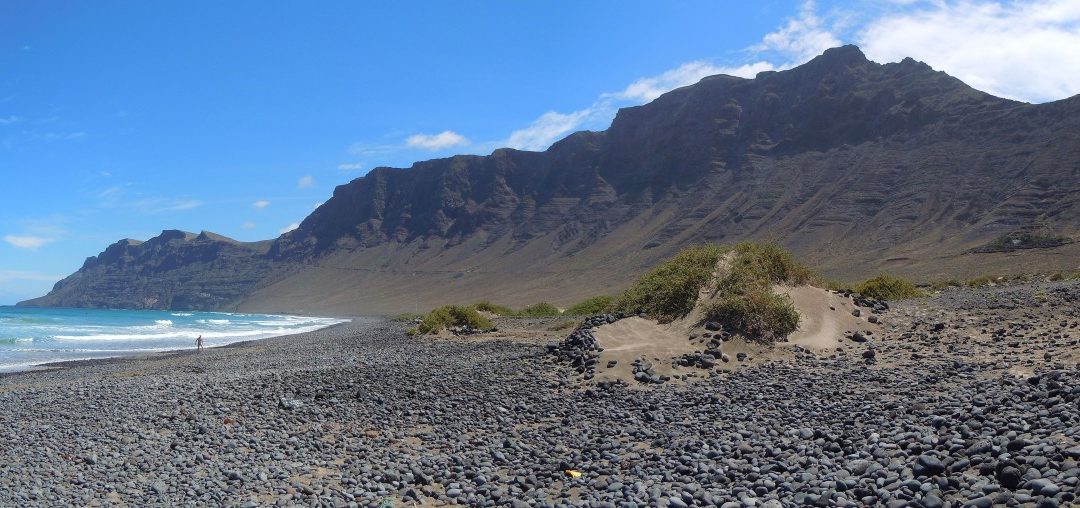Surf addiction? Looking for somewhere different with mind-blowing natural phenomena for some winter sun? Then consider a small Spanish-owned island off the coast of North-West Africa, it’s a surf heaven. Nicole Buckler finds the good stuff.
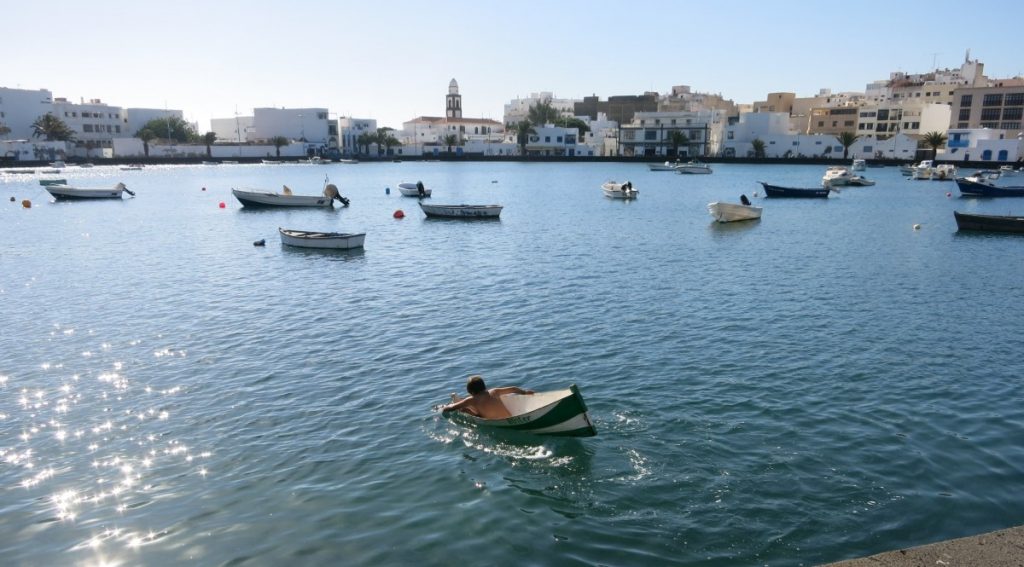
The capital, Arrecife, is not touristy at all, and you can find some excellent restaurants here.
Surf Lanzarote
Europeans, Scandinavians, and Russians know the island of Lanzarote well. The town of Puerto del Carmen on Lanzarote island is thick with holiday apartments built specifically for the package holiday traveller. Most of these travellers live in countries so sun-starved that tourists are there for one purpose – to get some solar rays on their skin.
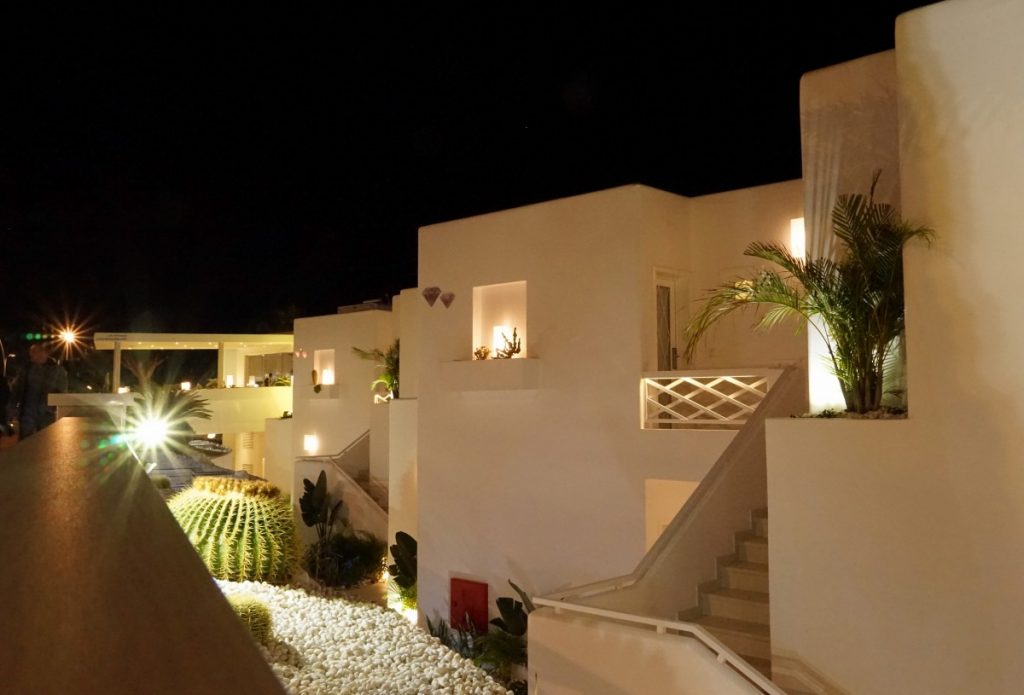
Typical accommodation at the resort area of Puerto del Carmen
Perfect Surf Weather
Lanzarote is nicknamed the “Island of Eternal Spring” because of its guaranteed good weather all year round. A subtropical-desert climate can do a lot for the tourist trade. Such tourists don’t tend to leave the resorts much, or venture further than the unadventurous restaurants around their accommodation. All they want to do is uptake vitamin D while lying next to a pool. None of these people surf. So this means that if you are going to Lanzarote to explore the natural phenomena, then you will get an easy ride. You will actually get some sites all to yourself! We Gold Coasters are spoiled for sun, so we can concentrate on other things while there.
Because of its package holiday reputation, this is one of the most underrated places to holiday in the world. Outside of the McResorts is a natural wonderland of world-class beauty. The island is so spectacular, that it was declared a biosphere reserve by UNESCO in 1993. And UNESCO don’t go around naming biospheres lightly.
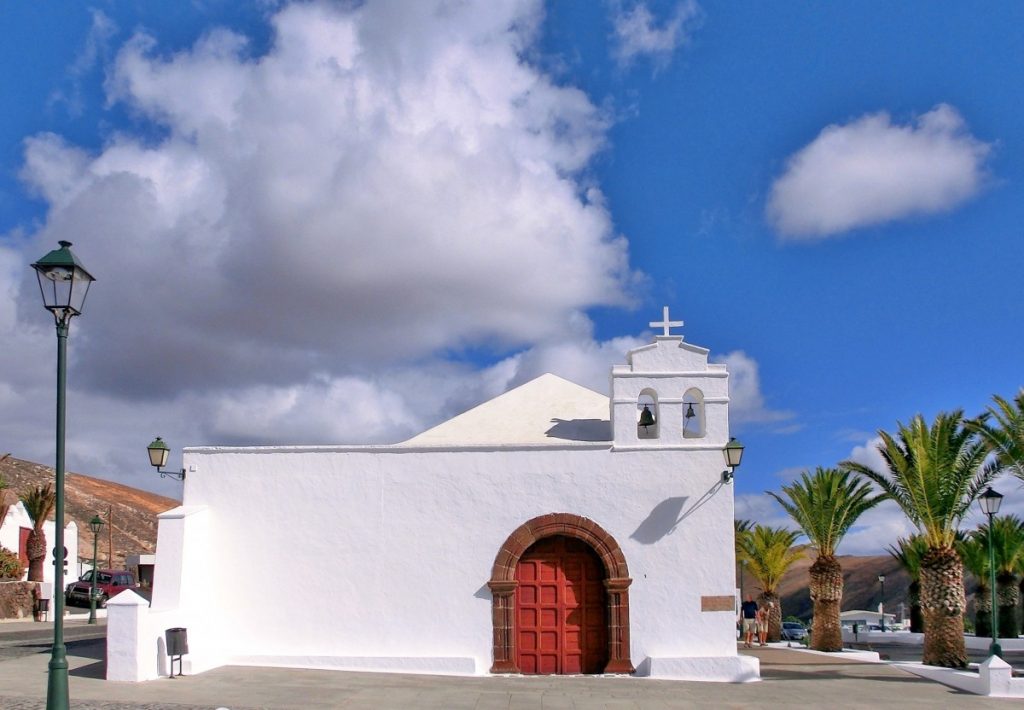
A small church on an arid mountain in a tiny town called Femes
Volcano!
Lanzarote, one of the famous Canary Islands, has a volcanic origin. It was born through fiery eruptions. Solidified lava streams as well as extravagant rock formations are quite the sight to behold. And they can go on as far as the eye can see. Some parts of the island are so moon-like, that photos of the area were studied by Apollo astronauts before going to the moon so that they could get an idea of what they might encounter.
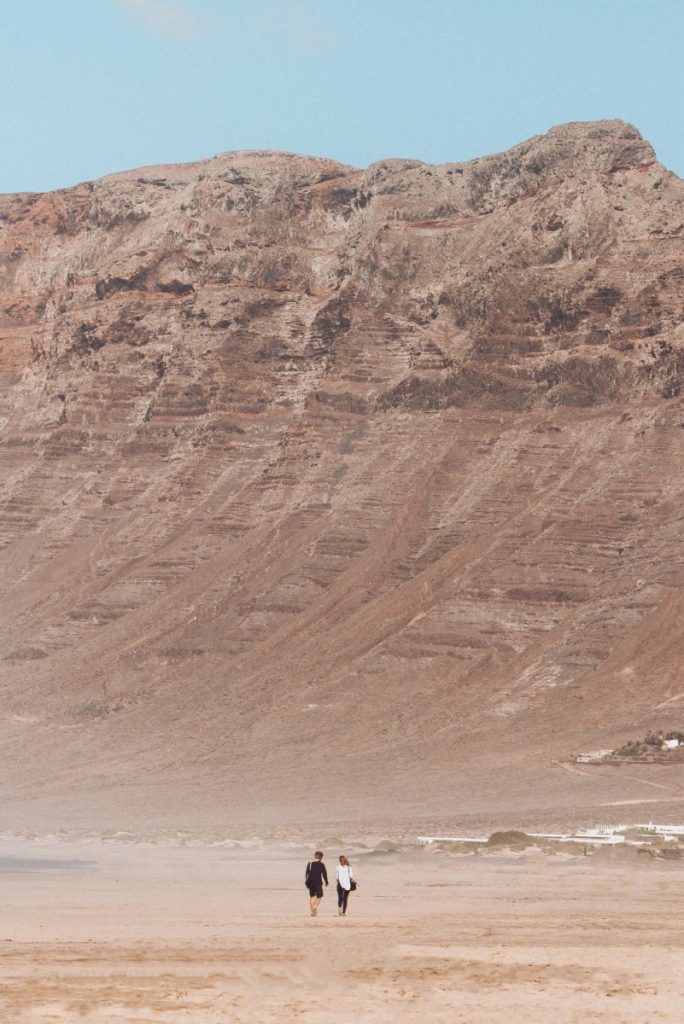
The otherwordly scenes at Playa de Famara
Beaches
The part-sand, part-volcanic-stone beaches are perfect for the barbequing of human flesh. This, combined with clear waters, makes Lanzarote the tourist attraction that it is. If you want to sneak off to a National Park beach, a must-see is El Papagayo, a collection of small bays with incredible crystal-clear waters and fine white sands — it could be the most gorgeous place on the island. Although, it can be quite a mission to get to it.
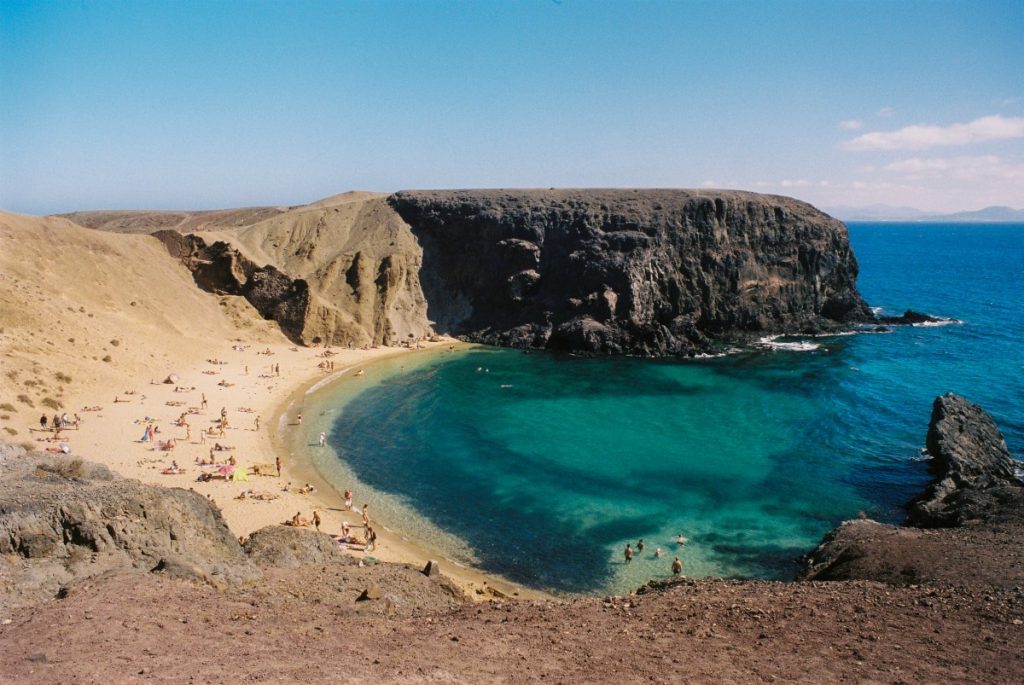
Papagayos Beach, inside a national park, is probably the most beautiful beach on the island
As well as needing a car (preferably a 4WD as the roads are not really roads at all), the best coves require visitors to climb down a sandy cliff to reach the alluring beach below. Only mountain goats or reasonably able humans can accomplish this feat. Clothes are optional here, so when in Rome…
Black Sand
Because of the volcanic history, there are several black-sand beaches on Lanzarote. This is an Instagrammer’s dream come true. If you’ve never seen a black sand beach before, you’ll be amazed when your feet sink into one. Check out the black sand beach of Playa Quemada (burned beach).
Another thing to know is that Lanzarote is one of the best surf spots in Europe. Known as the Hawaii of Europe, the best place to surf is Playa de Famara. It is a black sand beach under huge black cliffs that will seem otherworldly. It is not touristy at all in this area, and you can find some crazy little places to stay in Caleta de Famara, a coastal village next to the beach. But be quick, this place is starting to get on the map. In the last few years Famara has become the place to be for numerous surfers from all over the globe. The 6-star ASP event La Santa Pro is a leg of the world surfing championships. It was held in October at the beautiful beach of San Juan, a few hundred meters away from the village.
If you want to surf here, you can hire boards and wetsuits on the island. Remember, this is the Atlantic Ocean, not the Pacific, so the water can get cold at times.
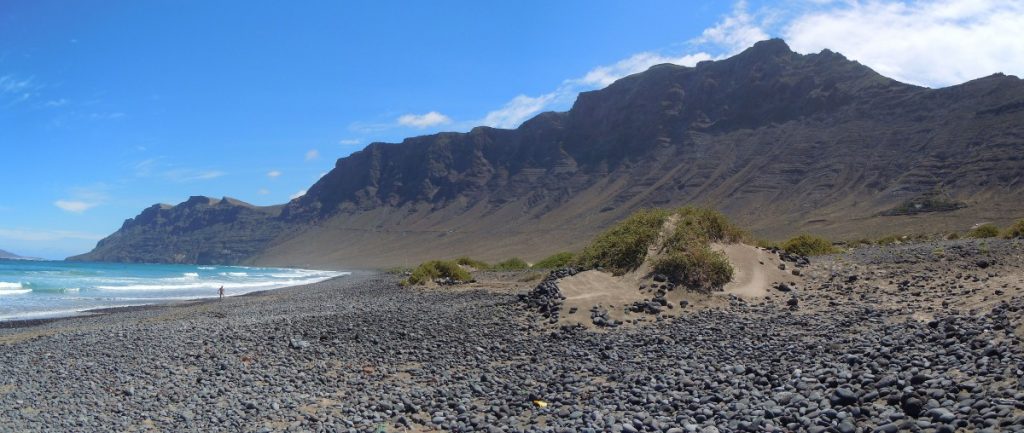
Playa de Famara, said to be the best surfing spot in Europe.
 Other Swimming Spots
Other Swimming Spots
The lagoon called El Golfo is something else. The neon-green body of water sits between a black beach and red cliffs. It started its life when sea water ran into an old volcanic crater. The green colour is from algae living its best life in the water. Around the edge of the lake, you can pick up pieces of a mineral called olivine – it is very popular with jewellery makers. Like vast tracts of Lanzarote, being there is like being on another world.
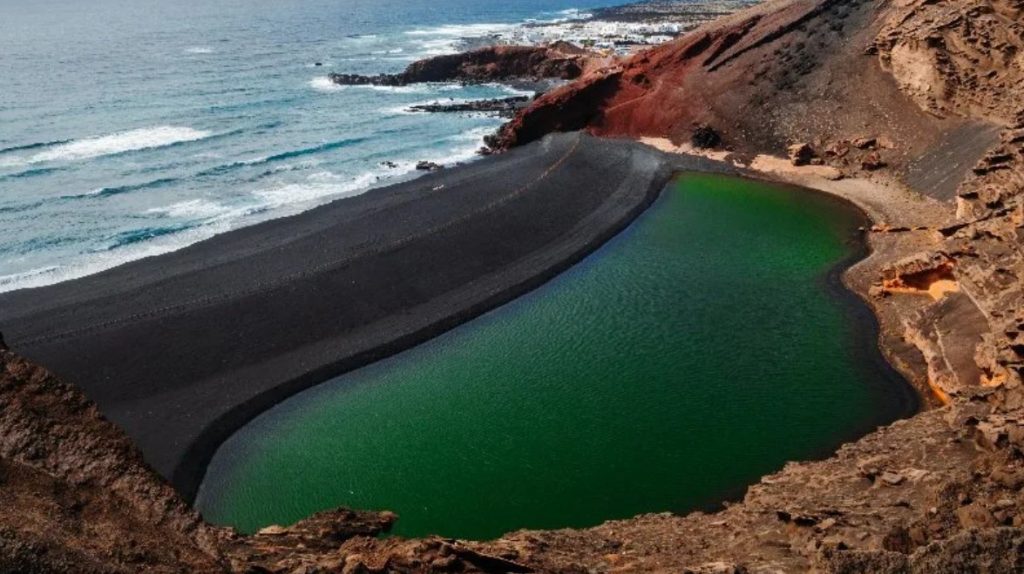
The strange colours of the lake at El Golfo
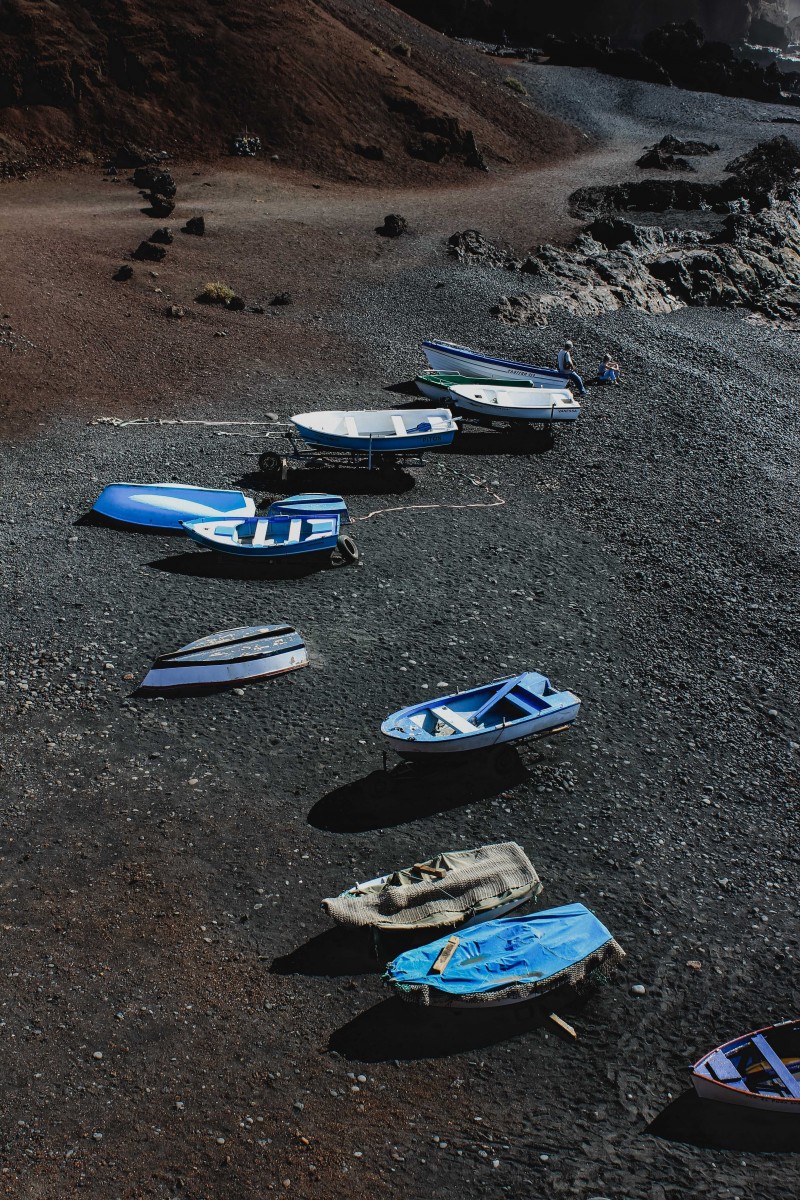
El Golfo is a small fishing village that retains an old-world feel.
The Hot Stuff
Timanfaya National Park is the hands-down highlight of any trip in Lanzarote. Timanfaya, meaning “Mountain of Fire” is one of the greatest geological phenomena you are likely to see. This region was devastated by intermittent volcanic eruptions, the last being in 1824. All life was nuked. The effect that this had on the landscape was, and is, incredible. It is a vast expanse of lifelessness that goes for as far as the eye can see. There are “seabeds” of dried lava which look like giant petrified slugs that go on for miles. It truly is an amazing place.
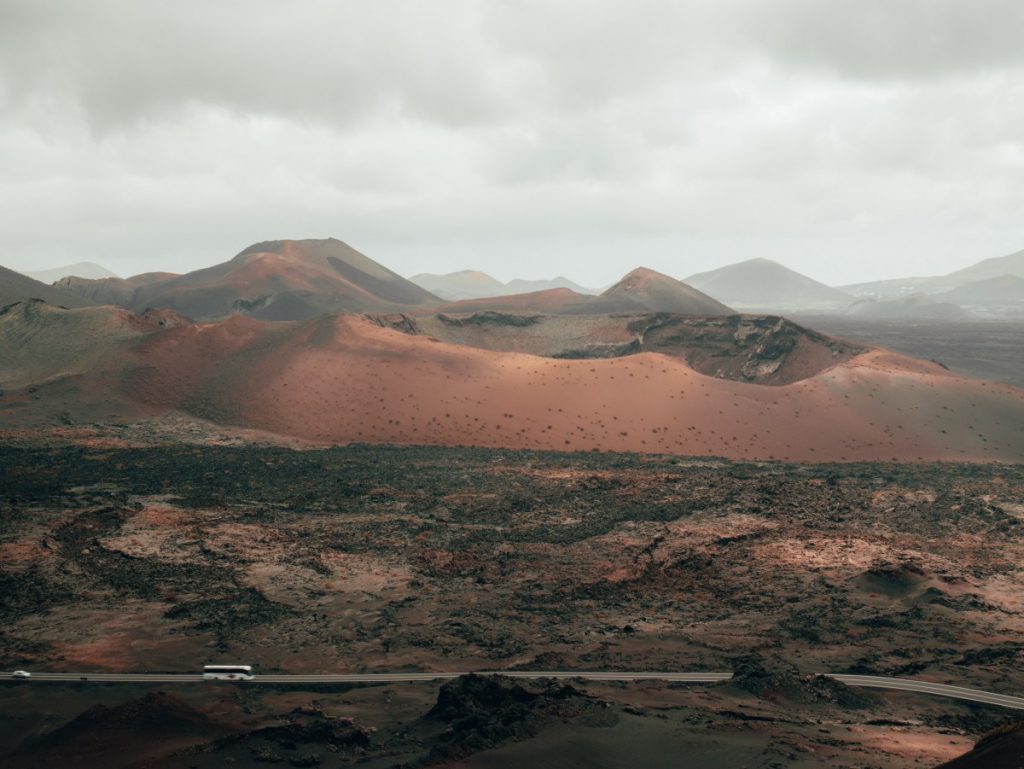
One of Timanfaya National Park’s spectacular craters.
At this strange-looking place, the ground is still scorching hot, so you aren’t allowed to just walk around like a lunatic. Any visitors must stay on a bus or be contained in guided tours. The ground is still so volatile and deathly dry that a human could die in a few hours of being lost in the park. But be sure to visit Timanfaya, you’ll feel small and unimportant in a good way.
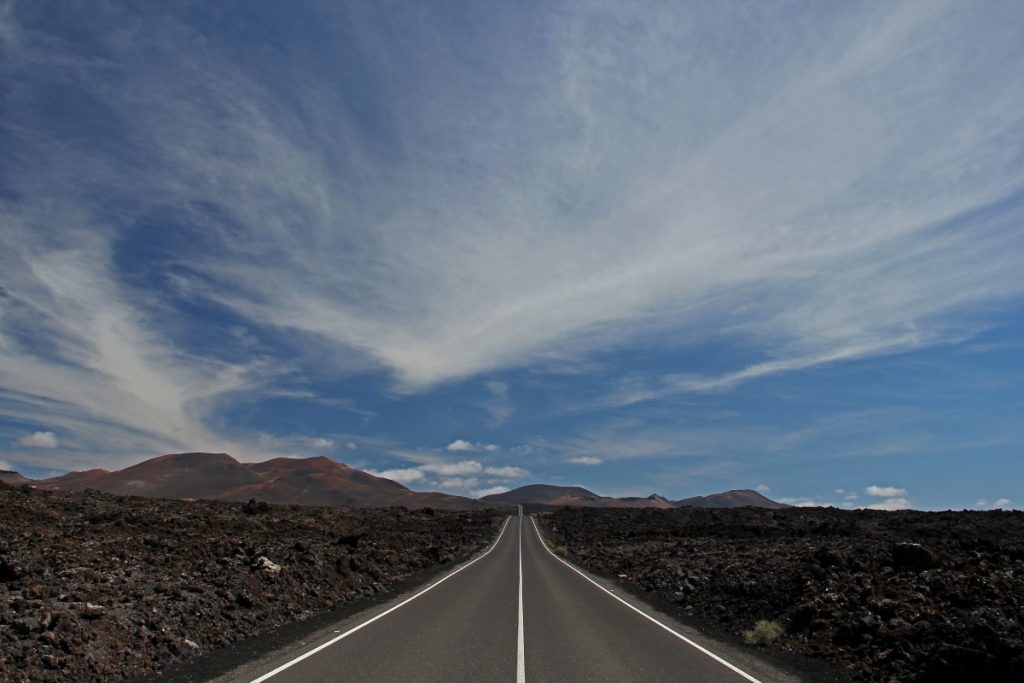
The vast expanse of hardened lava seas.
As a side-note, the heat of the volcano is used for cooking steaks and fish in a restaurant on top of the lava flow, called, of course, El Diablo. More or less, the dead flesh is held over the lava until it is crispy and perfect. Free heat, I like it.
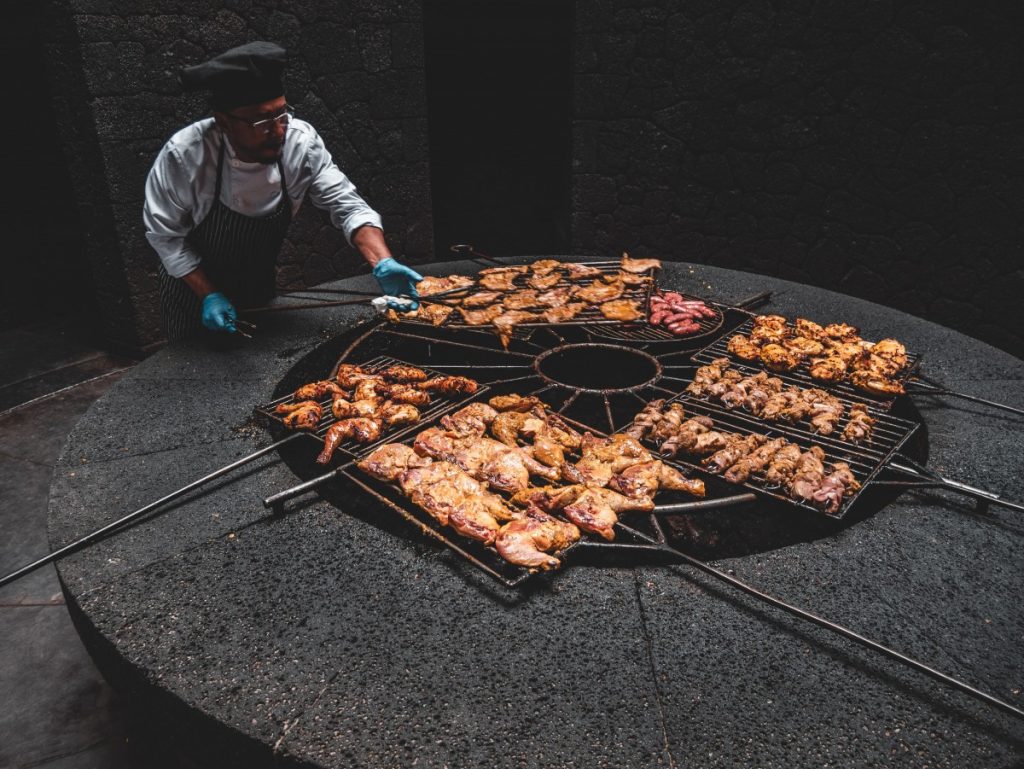
A restaurant in the volcanic area uses geothermal heat from the earth to cook up a Sunday roast
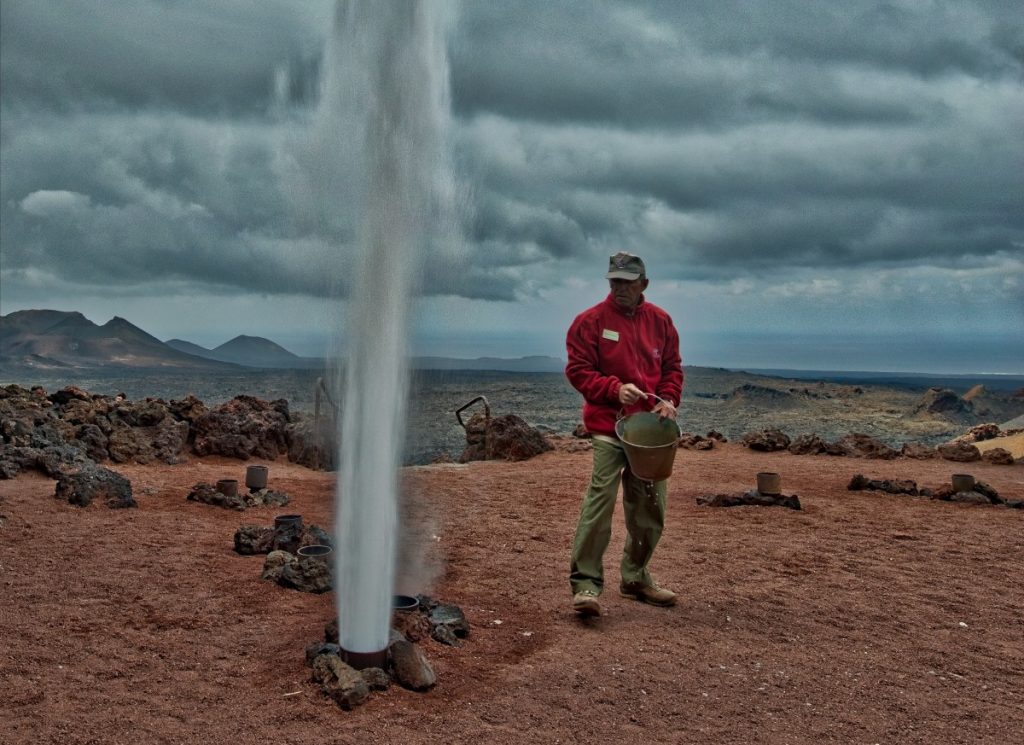
A demonstration of the geothermic activity is performed by throwing water into the ground resulting in a sensational geyser of steam
Wine Production
If humans ever wanted to learn how to grow grapes on the moon, they should come and see it being done in La Geria. This wine region looks like the lunar surface. It is desolate, seemingly dry as hell, and steep. But Lanzarote’s biggest wine-producing region has managed to make a wine industry thrive in the face of punishing adversity.
Lanzarote is windy. Legend has it that after several days in Lanzarote, the constant wind creates a biological response in humans of sheer anxiety. As well as allegedly making us all jumpy, the wind blows away the grapevine seeds before they can germinate. So the locals of Lanzarote dig deep holes in the hills of lava, and build rather odd-looking stone circular walls around the seeds so that they don’t blow away. These walls also hold in the scant dew that appears on the plants from time to time.
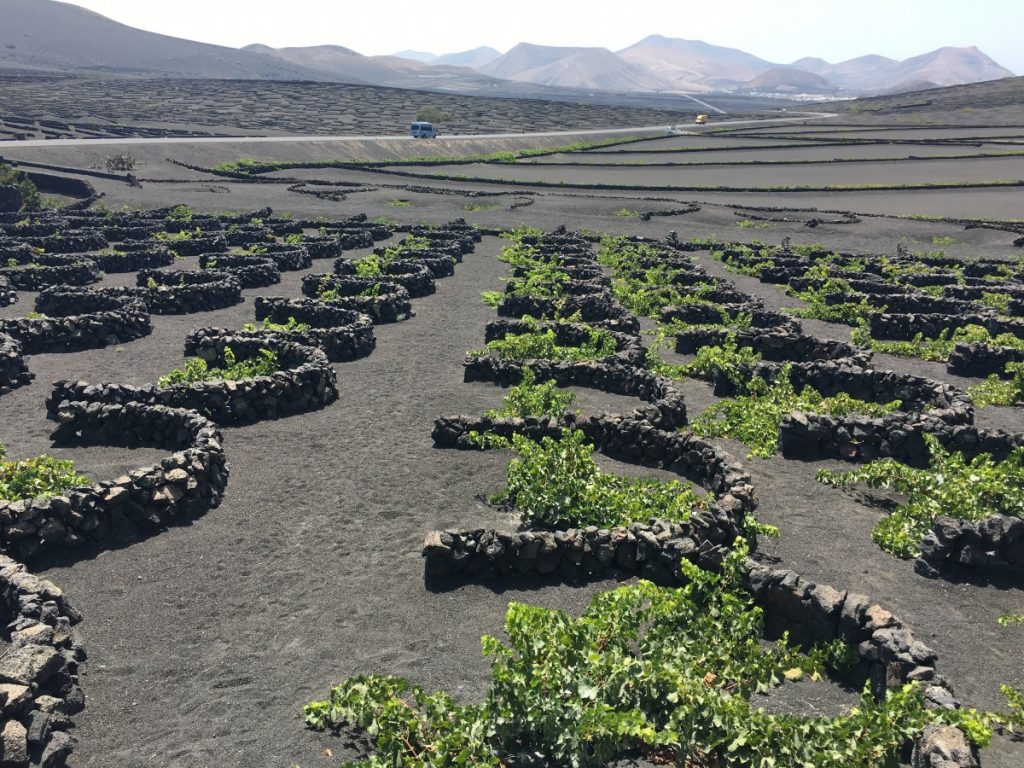
Crescent shaped, dry stone walls called zocos are built around the northerly edge of each grapevine pit to shield the vine from the prevailing winds.
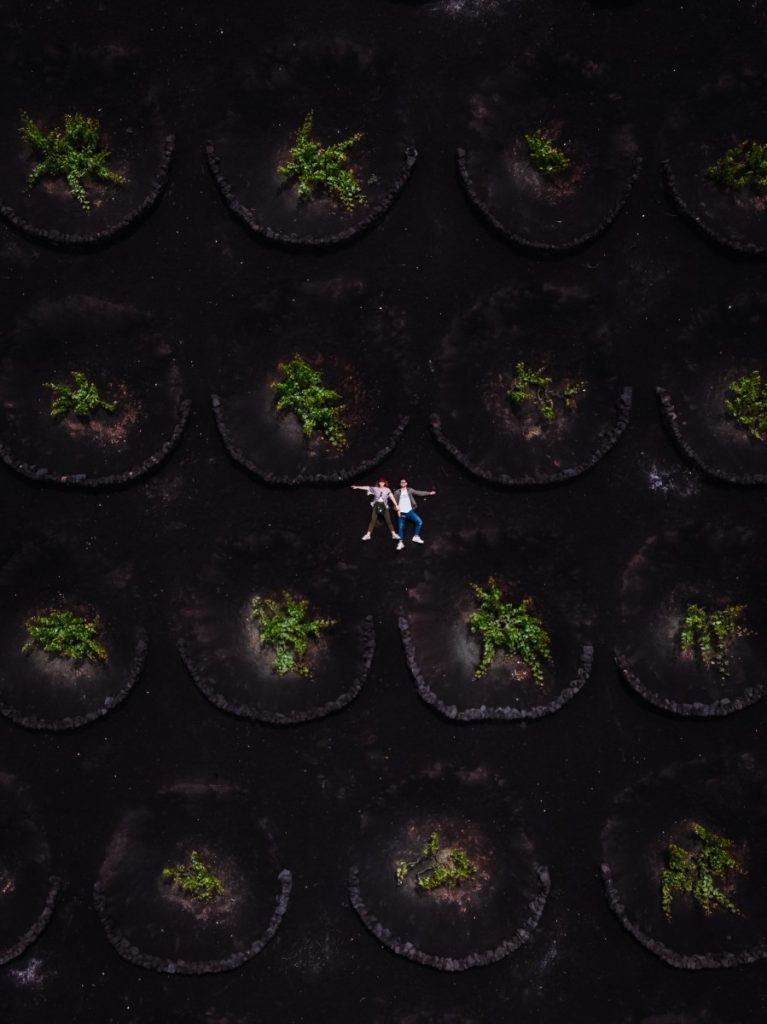
Each zoco is built carefully to still allow the air to pass through the tiny holes and cracks to keep the plant well ventilated
It is truly extraordinary to see large expanses of these stone circles. But all the effort building these pods is worth it. The wine of lava from Lanzarote has a remarkable peppery taste and you drink a whole lot more of it than you remember, usually. If you ever take any of my crazy recommendations, take this one. It is seriously the best wine I have ever tasted in my life.
Water
Lanzarote is a “desert island” where most of the drinking water is imported in bottles. It is a seriously dry place where only cacti survive well. The rainfall is scant, but in Lanzarote there is fog fairly often, which is a saving grace.
The locals have developed an ingenious way of collecting water — they catch fog. They have erected huge vertical sheets of fine nets which sit on the tops of mountains. When the fog moves through the nets, it precipitates into water and runs down the nets into storage tanks. This technique of collecting “horizontal rain” provides an alternative source of freshwater. Along with the wind power turbines, the landscape is quite an interesting spectre, all in the name of living well in a harsh but achingly beautiful place.
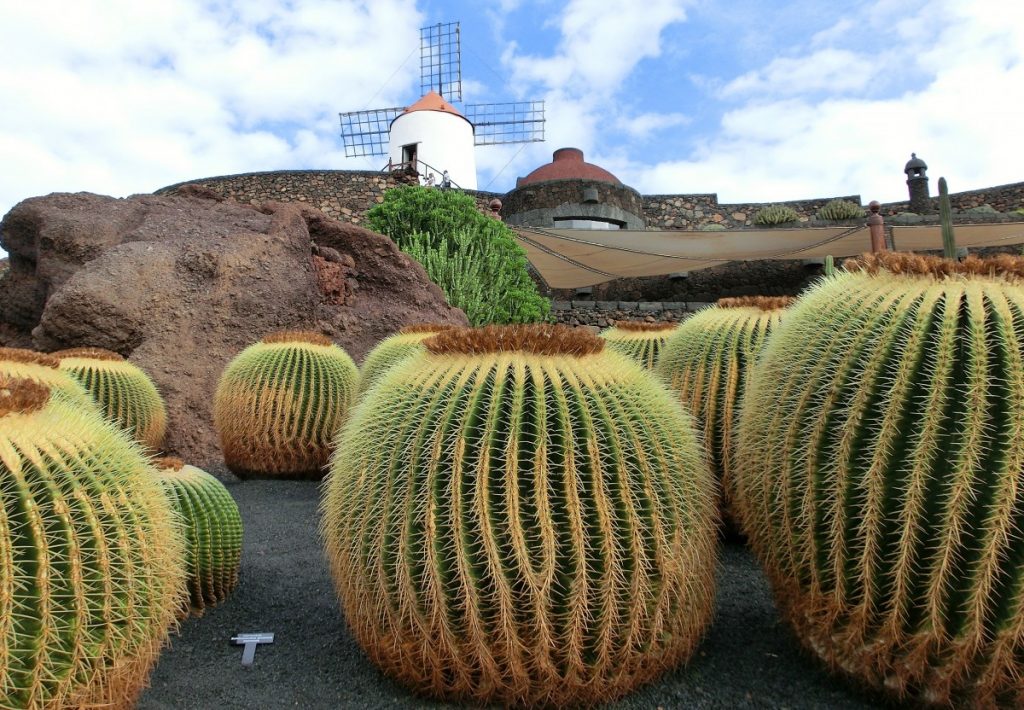
The cactus is the most successful species on Lanzarote.
Cuisine
If you stay in the tourist towns, you can expect to be disappointed with the food. However, once you strike out into the areas where the locals live, you’ll be impressed.
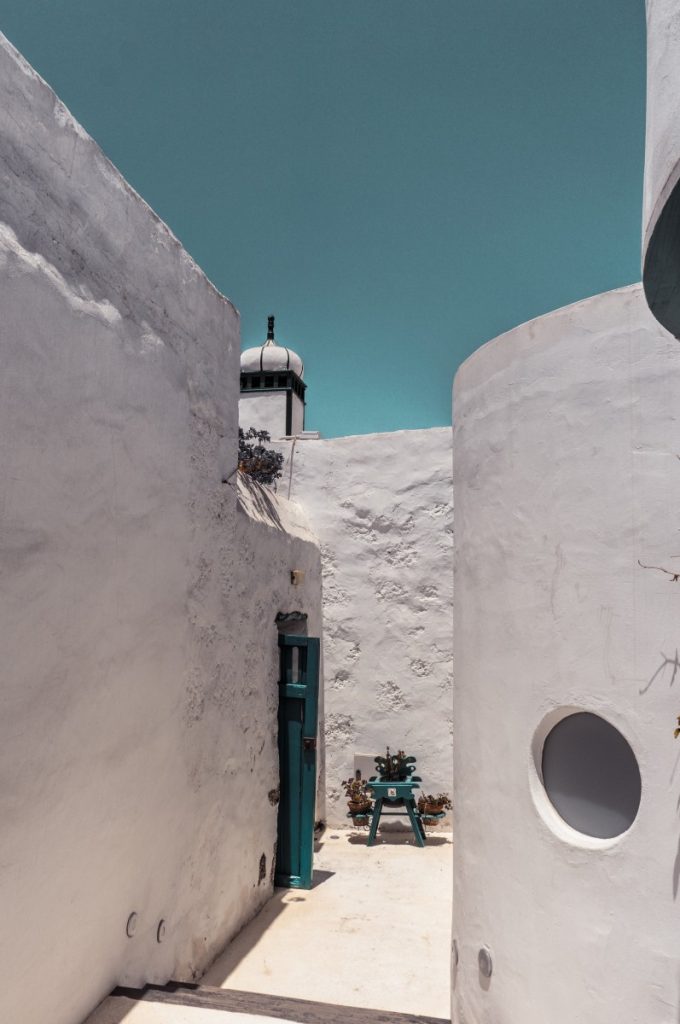
The Spanish port areas sees the menu change to tapas, fresh fish and seafood cooked in the Spanish-Lanzarote way. And, you’ll find the famous Lanzarote potato with Mojo Rojo sauce — tongue orgasm kind of stuff. Anywhere out of the way, after a wild surf, is where the good stuff is.
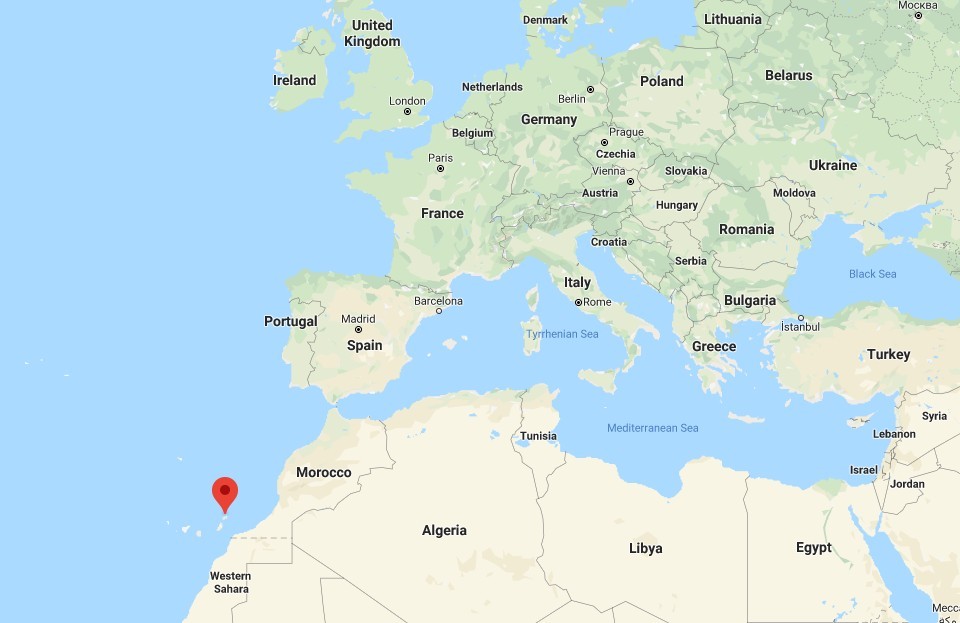
Video
Here is a video from the Lanzarote tourist board.
Getting There
A great way to see Lanzarote is to book a package holiday out of somewhere like London. That way, you get to see London and then you can get a cheap, direct flight from the English capital. Your accommodation will be thrown in for next to no extra cost. Otherwise, flights go from the Gold Coast via Doha in Qatar, while others are routed via Spain. Happy travels! ■
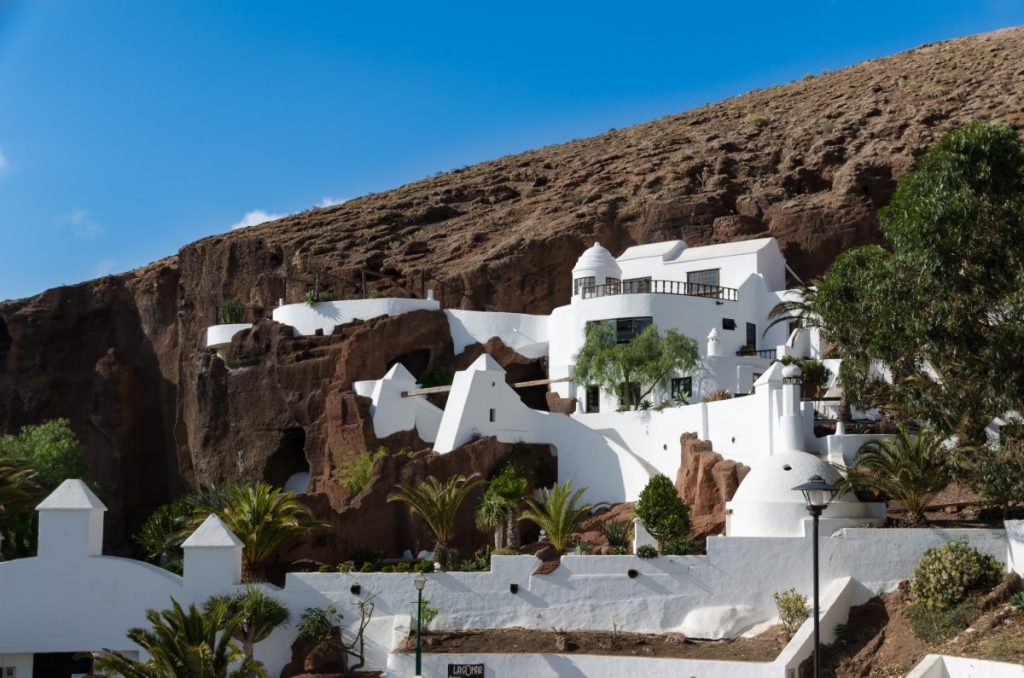
Museo Atlántico
This insane attraction is an underwater museum featuring more than 300 sculptural works by British artist Jason deCaires Taylor. It opened to the public in 2017. The art pieces sit 14 metres beneath the surface of the Atlantic Ocean in Bahía de Las Coloradas, on the south coast of Lanzarote.
The underground art gallery is permanent and has been created entirely with pH-neutral materials. It is currently being colonised by marine life and makes for a spectacular dive in the Atlantic.

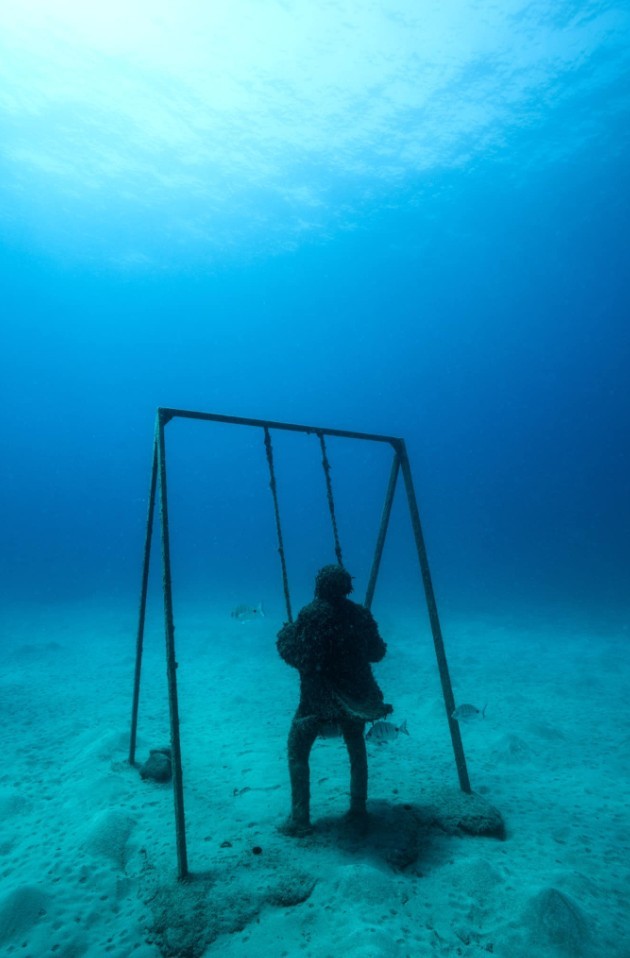
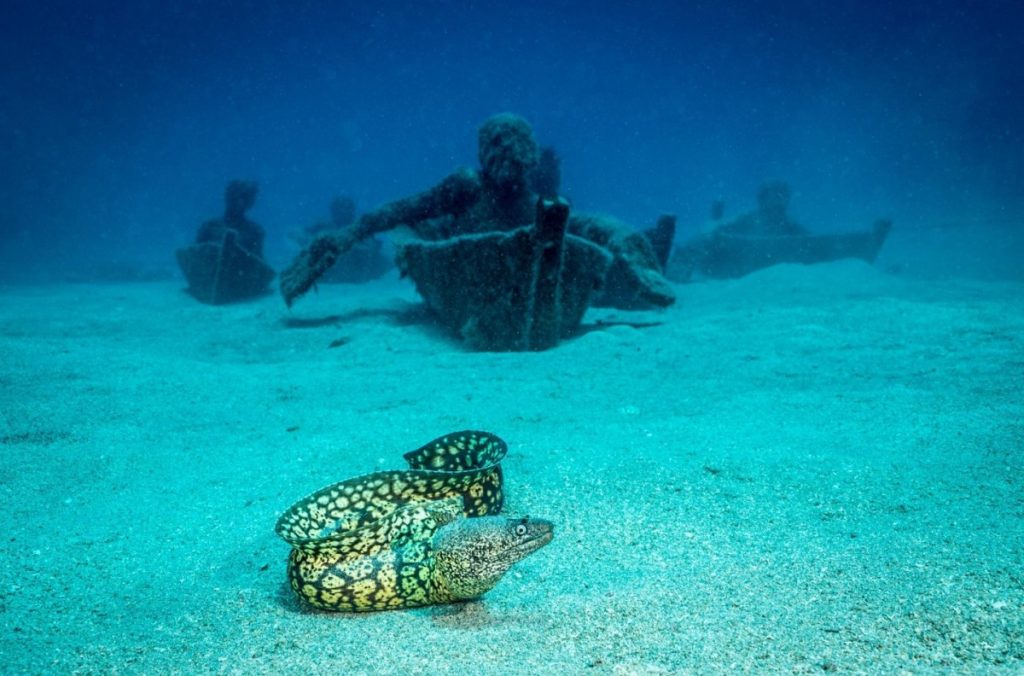
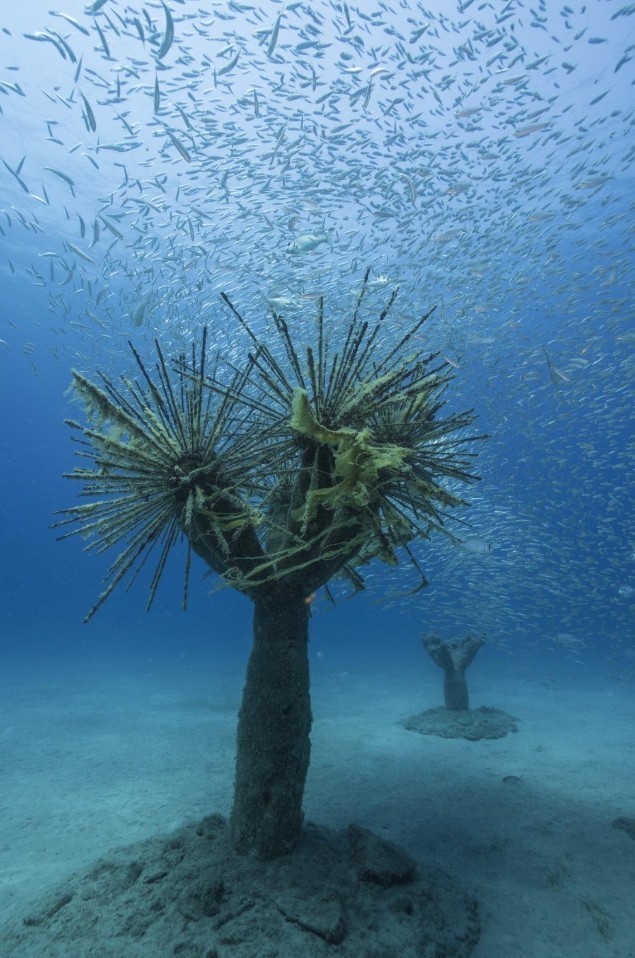
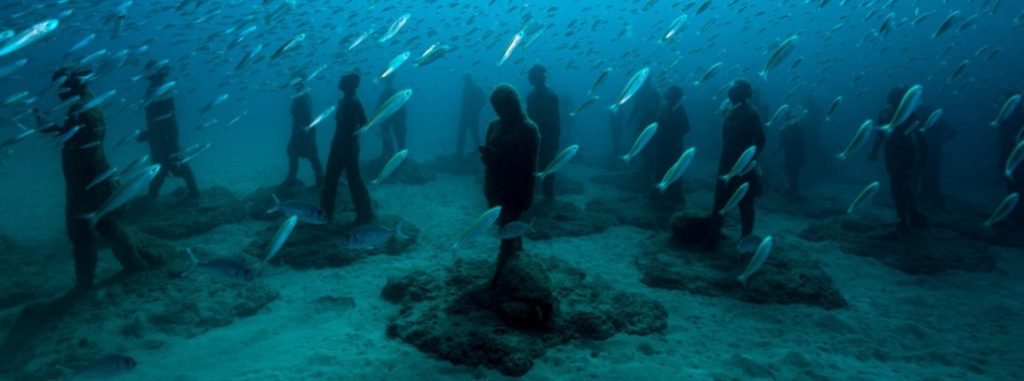
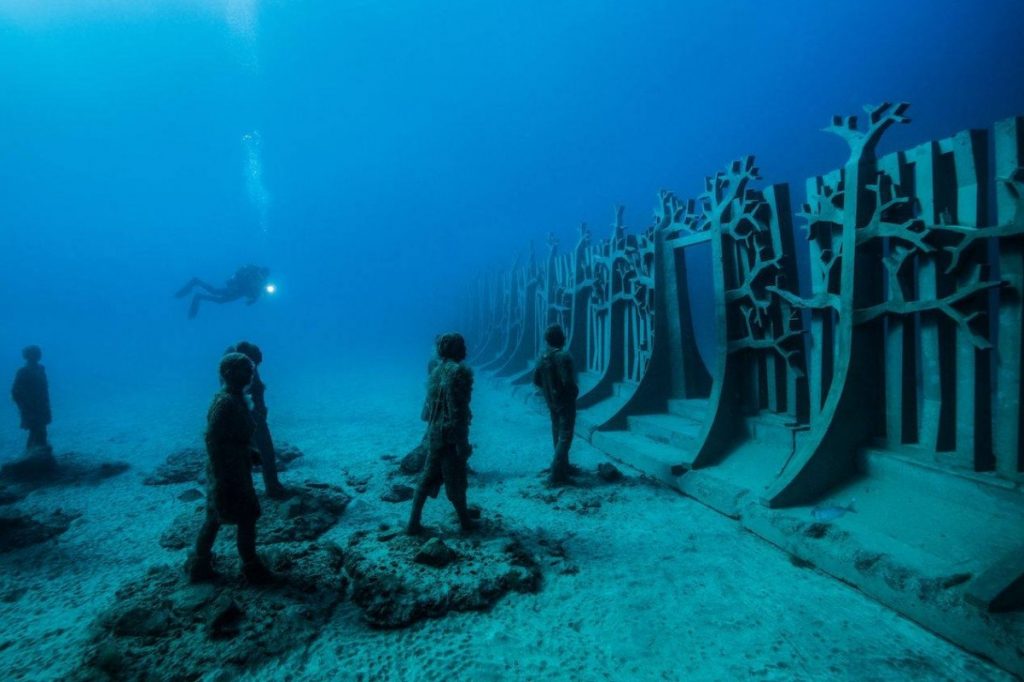
North-west Africa too far? Then how about Thailand?

Editor for Silver Magazine Gold Coast
